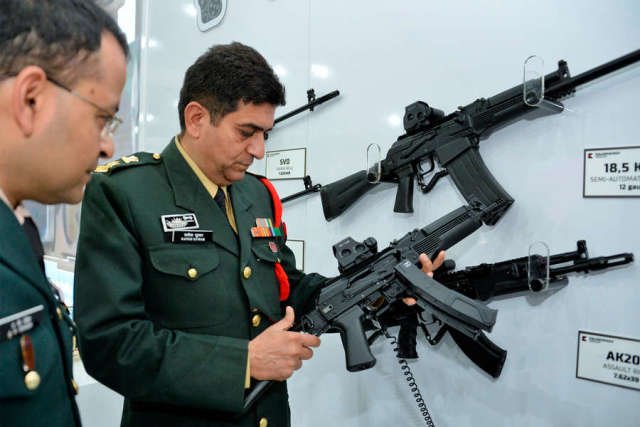The HSE said that the United States will not be able to force India to give up Russian weapons
This week, negotiations between the United States and India took place in Washington in the "2 + 2" format, at which American politicians tried to convince Indians to abandon military cooperation with Russia. Will New Delhi go for it - in the material of the "Newspaper.Ru».
The meeting was attended by U.S. President Joe Biden, Secretary of State Anthony Blinken and Defense Secretary Lloyd Austin. From India - Prime Minister Narendra Modi (via video link), Foreign Minister Subramanyam Jaishankar and Defense Minister Rajnath Singh.
Blinken noted after the meeting that the United States plans to become India's "preferred partner in trade, technology, education, security and defense." The Secretary of State said that Washington will seek to reduce military-industrial cooperation between Moscow and New Delhi.
Director of the Center for Integrated European and International Studies (CCEMI) HSE Vasily Kashin in an interview with "Gazeta.Ru" expressed doubt about the possibility of implementing this strategy.
"The United States does not have such a scale of supplies for India that could encourage this country to join the sanctions, completely changing its previous policy. The principles of Indian foreign policy have a completely rational basis. Their main approach is that they try to deal with everyone and squeeze the maximum out of each partner," Kashin said.
The former deputy Russian military attache in India, retired Colonel Andrey Belyaev agrees with him.
- said Belyaev.
Alexey Kupriyanov, head of the South Asia and Indian Ocean Region Group at the Center for Asia-Pacific Studies of the IMEMO RAS, explained that two factors influence Delhi's decisions on the procurement of military equipment from certain states, the first of which is the fear of relying on only one partner.
"The Indians are interested in diversifying their purchases. They have a very sad experience - at one time they focused almost entirely on us, and when the Soviet Union collapsed, the Indians found themselves virtually without a supplier of weapons and with big problems in terms of the supply of spare parts. Therefore, now they will buy something from Israel, something from France, and something will continue with us," Kupriyanov believes.
The second factor, according to the expert, is the presence of "influence groups within the Indian Defense Ministry that lobby for the interests of certain suppliers."
"As a result, any contact is the result of careful balancing and complex internal processes in the bowels of the Indian defense industry: let's give in to one lobby and order a car from the Russians, and then give in to another lobby and order electronics for them from the Israelis, we'll glue everything together and get a great plane for our Indian needs. That's about how Indians work," Kupriyanov explained.
According to him, the reasons why it was not possible to implement a number of projects between Russia and India are primarily due to Moscow's unwillingness to transfer to India the amount of technology that would suit Delhi.
Kupriyanov added.
Vasily Kashin noted that the Indians are not going to become an exclusive partner of the United States and refuse to cooperate with Russia.
"The Indian-Russian partnership is based on the interest of Indians in Russia as a country that, without posing any threat and having no political contradictions with India, is ready to provide equipment on a commercial basis that other countries will not provide. Any attempts by the United States to influence this are not very promising, if only because any cooperation with the United States in the military sphere is associated with an extensive set of political conditions, and if you depart from these conditions, an instant ban on cooperation follows," Kashin summed up.
Denis Telmanov

